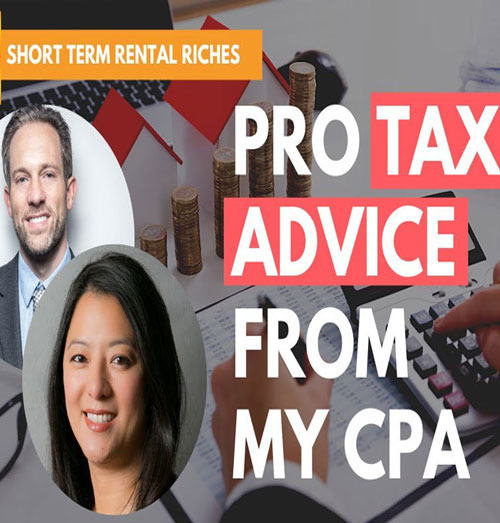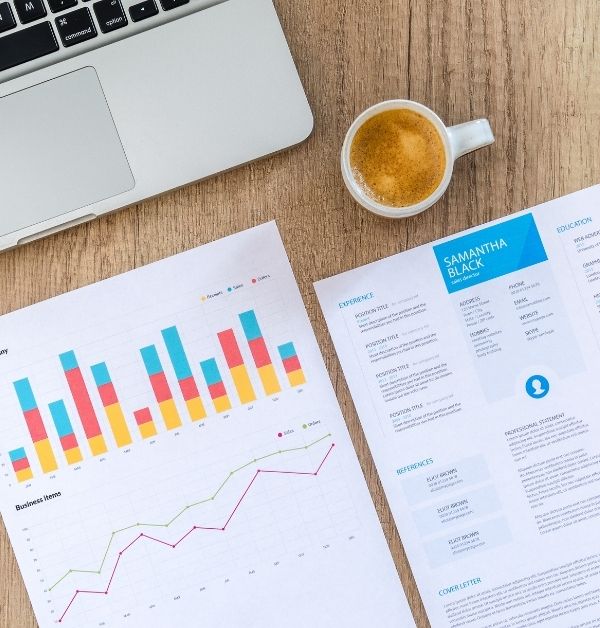Discover how to maximize revenue with a Dynamic Pricing Tool! Learn pricing tips, AI trends, and strategy insights from PriceLabs’ co-founder Anurag Verma.
Pricing your short-term rental is no easy task—but with the right tools, you can maximize revenue and occupancy. In this episode, Tim welcomes Anurag Verma, co-founder of PriceLabs, to discuss how dynamic pricing has evolved, why data-driven decisions matter, and how hosts can optimize their strategies in an increasingly competitive market.
In This Episode, You’ll Learn:
- How PriceLabs grew from a beta tool to managing 450,000 properties worldwide
- Why pricing flexibility leads to higher earnings
- The most underutilized feature in PriceLabs that hosts should be using
- How AI and automation are shaping the future of dynamic pricing
- Actionable tips for setting the perfect base price and fine-tuning your strategy
Why Listen? Whether you’re a new host or an experienced property manager, this episode is packed with insights to help you optimize pricing, increase bookings, and stay ahead of market trends.
Resource Links:
Check out our videos on YouTube: https://www.youtube.com/@ShortTermRentalRiches
Grab your free management eBook: https://strriches.com/#tools-resources
Looking to earn more with your property (without the headaches)? Chat with our expert management team: https://strriches.com/management-services/
Relevant Tags: #DynamicPricing #PriceLabs #AirbnbOptimization #ShortTermRentals #RevenueManagement #VacationRentalSuccess #STRInvesting #HospitalityTech #RealEstateTools
Click Here to view TranscriptWelcome to Short Term Rental Riches.
We’ll discuss investing in real estate, but with a specific focus on short term rentals.
Quick, actionable items to acquire, manage, and scale your portfolio.
I’m your host, Tim Hubbard.
Well, welcome back, everyone, to the Short Term Rental Riches podcast.
I’m really excited for our guest today.
He’s one of the co-founders of one of the companies that we talk about a lot on this channel, because they handle dynamic pricing.
So today, we’re with Anurag Verma.
He’s one of the co-founders of PriceLabs.
How are you doing, Anurag?
I’m good, Tim.
Thank you so much for having me here again.
Yep, fantastic to see you.
I was searching my email just to get a little bit more about your bio, and I found an email between us from 2017, actually.
So we’ve known each other for quite a while.
I know we’ve seen each other and met up at a bunch of the conferences.
We’ve been users of PriceLabs for a long time.
Tell us, where is PriceLabs today?
I mean, you guys are massive.
You’re worldwide.
Just give us the background.
Where are you guys at today?
I’ll go there, but before that, 2017 was eight years back.
It’s been a ride for, I think, the entire industry, right?
A lot of the companies that are out there today barely existed back then, including us.
Things have changed so much.
They have changed so much, yeah.
And I’m excited to dive in today to see where you think things are headed as well.
But we’ll get to that in a few minutes.
Absolutely.
So in terms of where PriceLabs is, we started in 2014, I want to say.
So like you were one of the, started in 2014, built out a beta, put it out in the world to see, is anybody interested in pricing their short term rentals dynamically?
Turned out they did.
And when that happened, we were like, oh, maybe you should register a company and do this for real.
So 2016 is when we actually started a paid product or paid volume of the product.
When you showed up, you were pretty happy.
The price, about 450,000 properties around the world or units around the world, which if you had asked me or anybody else in our team back then, the number just seems crazy now.
But we integrate with like 150 different property management systems.
I think back then, I didn’t even know that many property systems, property management systems exist.
There weren’t that many.
There weren’t that many now.
I mean, there were that many that we didn’t know.
You get to know about some of them.
Of course, a lot of new ones have also come up.
So that’s totally the case as well.
Yeah.
And our team is spread out around the world.
So we started out in Chicago and was like pretty vehemently.
The entire product team needs to be in one place, philosophy folks, to go with it.
And then we were like, oh, now that we’re doing remote, might as well spread around everywhere.
And so now we have presence in US, a little bit in, I want to say, a couple of folks in South America, in Europe, a lot of folks in India, a lot of folks in Philippines, so spread all over the world.
So we started out just as a pricing system.
And over time, we’ve been adding more and more layers with the philosophy that our core expertise is in one, revenue management, and then two, the data that powers revenue management.
So we scrape a lot of data, we collect a lot of data.
So even if it is adjacent to revenue management, if the data is helpful, being able to say, okay, how can we solve a problem for a customer?
Started with dynamic pricing.
One of our big push was dynamic pricing by itself is not enough.
Like everybody has preference of what they want out of pricing, so you should be able to make the algorithm work for you if you want to.
So went through that, then rolled out internal reporting, rolled out market dashboards, and then last year, rolled out revenue estimators as a product.
If you’re looking to invest in, or if you’re in a management company and owners are coming to you to say, how much can I make here?
Like instead of that process taking four hours, can we make it take five minutes?
So well, okay.
So yeah, way back in 2016 when you guys started, fast forward to today, 450,000 properties using PriceLabs around the world.
A team spread around the world, and a tool that does so much more than it did back then, including the revenue estimation, which you just mentioned, and I know our teams used quite a lot.
I’m just curious, how big is your guys’ team now, Anurag?
I mean, how many people are supporting PriceLabs?
We have about 250 folks.
One of our biggest teams is customer support.
I think we have about 50 people in that team.
About 100 people between engineering, data science, and product development.
So, like a pretty large team there as well, given how many moving parts there are to everything involved.
So yeah, like a much larger team than I.
Yeah.
And your background, or before you started PriceLabs, you were working in the airline industry.
I mean, a lot of times, founders, they start companies to solve problems where they see them.
So, it sounds like you sort of were working in this area and you brought it into the short term rental space when it didn’t exist.
So, that’s, I had the benefit of having co-founders, I want to say.
My background was strictly in statistical modeling, dynamic pricing, those kinds of things.
And I was doing it for United Airlines.
And I had no intention of starting anything.
One of my close friends from undergrad was managing our short-term rental in Chicago.
And him and I were talking, and he’s like, hey, AirBnB is going to be a big thing, but there’s nothing doing pricing here.
You know how to do pricing, like should we figure out how this can be done for AirBnB?
And we got talking and it does look like something should exist here, so let’s give it a staff kind of a thing.
From that sense, there was somebody who was in the industry as a reason for us to have this problem, my co-founder.
And then we found a third person who used to work at Orbitz, so like had the travel technology experience.
At Orbitz, okay.
And engineering background to say, okay, how does distribution work?
How to make the platform work so that it’s connected to everything?
All of that.
So it was neat from the industry and then some skills that were useful for the industry.
Yeah, it’s definitely a useful tool and you know, that’s evident in the 450,000 properties that are currently using that.
And I know that it’s changed a lot since we first started.
You guys are just releasing new features all the time, but it’s because things are getting more advanced, they’re getting more detailed, the industry is getting more competitive.
And so I know that someone can turn on PriceLabs and it can certainly help them in a lot of ways.
When we first got started, the dynamic pricing was amazing.
You didn’t have to adjust weekend prices every week and do all that.
But now there’s so many settings that it almost could be overwhelming sometimes.
What would you say to people out there that are maybe just using it, like turning it on, but not really getting to the settings, versus the super users?
I want to say there’s probably a happy meeting somewhere in between.
Because we see both ends of the spectrum, like we have customers who set things up and then don’t log in again for a couple of months.
And then we have folks who are in there every day and making small incremental changes up or down, like you said, for every weekend.
And our general thought process is, okay, you should not have to go in every day and do this tech.
And again, it depends.
We have customers who have 2,000 properties and three revenue managers, and they are in the system, like their daily jobs.
So we expect them to be in the tool all day, every day.
But if you have one home, for example, you shouldn’t be going in every day, but it should be more of once every couple of weeks, and of course, if you have 50 homes or 100 homes, then you will be in the mall.
But the hard part of pricing is you never know what’s the right answer.
So if there is a date in future that’s, let’s say there is some event happening and you haven’t gotten booked yet, you can start thinking, oh, maybe the price is too high.
Like, let me see if I can lower it.
And maybe you lower it by 50 bucks and you get it booked three months out.
And then you’ll start thinking, did I lower it too much?
Did I get booked too quickly?
You can very easily argue for both sides to say, hey, it’s okay.
So the thing that we want to do, like we have made a lot of data available in the platform, to be able to be a better judge of is this too high or not?
Should I change it right now?
Most cases, the answer is maybe not.
But if you have compelling evidence, like human beings have information that no computer might have or no algorithm might have.
So there are going to be times where you know, absolutely know, I know exactly what’s going on and I hate to trade this price.
But in most cases, when you look at the same, and I guess this price is too high, when that question comes up and some folks email us to say, hey, why is the price here so much higher than every weekend around it?
We essentially go into your account and look at the same data that you have access to, to say, hey, look, we are seeing this spike that is unnatural for this time of the year.
This far out, these many bookings indicate something big is happening.
Also, for this time of the year, three months out, 80% of the demand is yet to come.
So being priced a little higher than the market is okay.
Like if more than half the demand was already booked and you were priced quite high and worried, that’s a different story.
But when most of the demand is still yet to come and we are seeing a spike, maybe it’s okay to hold.
So what we have been doing, I want to say in the last three, four years, one, we have been improving the algorithm, but two, we have been making a lot of this data available, to say, how can you answer that question of like, should you worry right now or not, essentially?
Yeah, that definitely makes sense.
We’ve seen that on our end, like your market dashboards, for example, do a really good job of presenting data in a really great way.
I think if you want to be like a super user, you still have to know what data to look at, and you have to understand it.
And it seems to me, correct me if I’m wrong, but PriceLabs helps out tremendously.
Like it’s an essential tool, in my opinion, for any short-term rental owner, vacation rental owner, boutique hotels.
But the job of a revenue manager is quite complicated.
I mean, people dedicate their careers to it, and it’s one of the positions that a hotel will pay more for than almost every other position in a hotel.
So, how much extra revenue would you say?
I know this is a really hard question.
How much more do you think like a professional could squeeze out of this tool?
Just really understanding the data behind it.
Before I get to this question, I want to go back to the previous one.
So, any pricing system, like it doesn’t operate in vacuum.
We know quite a bit about the market, of each market and how demand fluctuates and things like that.
But each property is unique.
There are going to be things that you know that you set up in PriceLabs and give it as an input.
And then you fine-tune those inputs over time.
That is one of the things that when you are starting off, that is required that you do come in a little more frequently.
And if you have 50 Homes, then you’re probably adding one and losing some, all of that stuff is happening.
So you’re probably in the system quite a bit.
And it is totally okay to be in the system all the time, if you have a larger portfolio.
Or in the beginning, when you’re setting this up, when you’re learning it, right?
When it comes to professional managers, definitely there are two ends of the spectrum, where we have some revenue management partners where they understand the system really well.
Their first thought is not to say, how can I make the system do exactly what I want to do?
Their first thought is like, okay, why is the system doing what it’s doing?
Once they figure that out, then they go in and say, okay, the system is doing this because of that, but I know that that’s not happening.
Let me bring in my own insights, opinions, and in the form of settings to make it work better.
In those cases, we see revenue managers can bring in quite a lot of value.
Like, good revenue managers might have to modify.
I don’t know how to put a number on it, but a good revenue manager, I want to say, is as important as a good revenue management system.
Give us some numbers just for fun, just a range.
We did a study where we looked at new customers who are joining PriceLabs.
And then we said, and we have all kinds of customers joining PriceLabs any given month, larger ones, smaller ones.
Across the board, we saw something by month three.
On average, the rev power was up by somewhere between 20% to 25% for folks who were small hosts.
On the larger host or larger PM side, I want to say the number was smaller.
It was more in the 15%, 10% to 15% range.
But you could also see that they were already doing some dynamic pricing.
Even before starting PriceLabs, they were doing something in the PMS or Pan Airbnb directly.
So one thing you can say is like, okay, the reason why they didn’t see the lift of 20% to 25% is because they were already getting some lift just because the revenue manager was there.
So you can kind of say maybe that’s the value that they bring, like 10% to 15% is automatically the value that the revenue manager is bringing.
But I also want to say a good revenue manager with a good tool is probably going to be doubly effective because especially as a portfolio grows, doing it manually is like the revenue manager spends more time keying numbers in than sort of using their smarts to get the most out, right?
So, what should I say?
20%?
I had to do some random guess.
Right.
There’s no exact science for sure, but…
Definitely, there are a lot of very good revenue managers in the industry.
I want to say, if you went back 10 years, the revenue management tools didn’t exist, and revenue management as a discipline in short term rentals was almost…
It was there, there were people who were doing it, but even the distribution was so difficult.
A lot of PMSs, you would say, here’s my summer rate, here’s my winter rate, here’s my snowboard rate.
And revenue management, that was possible.
If you go back 20 years, you had to send out…
Like nobody was booking online.
For larger PMS, bookings would come from travel agents.
You would print out your rates for each week and send it out to travel agents to say, here are my rates.
What do you do in that case?
The revenue manager gets to decide rates once in the beginning of the year, and that’s it.
Now, as technology is getting better, distribution is not even a question.
They can change rates multiple times a day.
They have all of the tools available to be able to see what’s happening in the market, what’s happening in the root 40 or so.
Just both the human part and the technology part have exploded in the last 10 years, I would say.
We’ve been enjoying all of the new features that you guys bring on.
Obviously, you’ve brought them on for reasons, and there’s good use for them.
I’m just curious, do you know how many features are in PriceLabs if you had to guess?
I mean, settings, there’s got to be just tons and tons.
So feature, like, is a checkbox to start showing some data or features?
I would say more of like setting configurations, you know.
I think we have somewhere between 20 and 30, what we call customizations.
So for example, by default, last minute, you want to discount rates, given the structure of the industry discounting assets.
We come up with what the right discount should be for your market, but you can say, hey, maybe you don’t want last minute bookings for whatever reason, or you don’t want to discount as much last minute.
That’s a setting rate.
What happens when there is a gap?
Does the gap fillers come in for minimum stays?
That’s a setting.
Do you want far out prices to be slightly pumped up, pumped up a lot, not pumped up at all?
That’s a setting.
These are like price settings, and there are cosmetic settings.
There are folks who say, I don’t want prices being all over, just round them out to the nearest 10.
It just makes my day work a little better.
That’s a setting.
So something like that, we have about between 20 to 30 settings.
But we don’t want you to be using every one of them.
It should be, I have this need, and so I’m doing it.
What we don’t want is for you to go in and say, oh, there’s a toggle, let me turn it on.
In most cases, I want to say those settings are not, you don’t need to do anything with those settings.
There are five or six that we highlight to say, hey, here are the basics.
If you want to play around to see what exists, this is what you can play around with.
You guys have done a really good job on the platform with education.
I mean, if someone wants to, they can really, really dig into things and learn them really well.
But those sort of essential settings, you guys have done a really good job at just laying those out and explaining why things are happening.
The education pays 100%.
If you think about revenue management systems, pricing systems, the other place that they exist is hotels, airlines, and in both those cases, it’s somebody’s full-time job to be sitting on that revenue management system.
They are trained for it, they get degrees in statistics or whatever else to be doing those roles.
Whereas in this industry, in our industry, if you’re a homeowner who’s listening on Airbnb, you still want to use.
And so that somebody’s job, then to be able to give the right training.
So like I think that’s where we said, okay, we have to do this.
Because if we don’t do the right training, then revenue management systems can be complex or really daunting.
So as much as we do on the education side, we want to.
Yeah, you guys have done a really good job.
If you’ve been listening to the podcast for a while, then you know that I’ve been managing my properties virtually for years and years.
My team and I have managed thousands of guests.
We’ve learned a ton, and I’m really happy with the progress and the growth we’ve made.
In fact, we’re now big enough to help manage your properties as well.
Our team has a ton of experience from the inner city apartment to the large lakeside retreat.
We’ve worked with all types of properties across the nation.
We’ll help to take the management workload off your plate while earning top revenue and excellent guest reviews, all while charging an industry low fee.
If you’d like to find out if your property fits with our program, just head strriches.com.
There you’ll see a property management button.
Again, that’s strriches.com.
Just click on the property management button, and we look forward to chatting with you soon.
Question for you, Anurag.
I know there’s a wide range of people that tune in to the show.
Some people are just getting started.
Some people haven’t gotten started.
Some people have large portfolios or boutique hotels.
What’s one feature or setting that you think more people should take advantage of that maybe they don’t?
So if everybody who comes to PriceLabs, if I could tell them one thing, and we try to tell them that one thing in many, many ways, is, of course, you know this, get the base price.
The base price, think of it as your average price per night across the year, around which we will say what to do when there’s an event, what to do when there’s high season, when there’s low season, last minute, far out, and all of that.
The question is, like, how do you get, every home is unique.
How do you get this right?
There are multiple places where you can look at data.
If somebody comes and asks us, we say, okay, how does the market price for homes that are similar to you?
You can use that as a starting point.
If you are an existing short term rental, we also pull in your reservation data.
And there’s a tab in our next to our calendar called neighborhood data, where we show you with your current settings, what are your prices looking like in a chart?
What are the market’s prices looking like?
You can also add, show me how my last year’s bookings will look like on this chart.
And then you can say, okay, if this is the base price I go with, I would be like 40% higher than my last year’s bookings.
And at that point, most people should say, okay, either I was under selling, in which case I should have sold out everything.
But if I wasn’t selling out everything, then maybe this base price is too high.
There’s a lot of data available in neighborhood data and in base prices for you to be able to say, okay, what’s a good starting point?
And then, like you said, don’t leave it there.
Look, don’t set in, forget it.
Come in every week and say, am I getting enough bookings or not?
If I’m not getting, there are indicators in the system to tell you that you have not been getting enough bookings, but you also know that you have not been getting bookings.
So like you can say, okay, maybe I set this base price too high.
When a new property comes in, we automatically try to include all of this information and come up with the right base price, but there is enough available that I would say if everybody could go look at that, they’ll perform really, really well.
Those are great features you guys have added.
Again, all this stuff you guys have just been adding and adding, and it’s been really, really helpful.
So, okay.
So making sure someone has the base price is a massive first step there.
I think I said it more because you said there are folks who may not have their first short term rental yet.
The biggest lift you’ll get is from getting the base price.
And nobody gets it right in the first go, but knowing that you fight your net over the first few weeks, to get to the sweet spot where you’re getting just the right number.
Awesome.
Good stuff.
What would you say to someone out there?
You guys just have access to so much data.
It’d be amazing to see the back end with these there sometime.
But what would you say to someone that is out there?
We work with a lot of different properties in a lot of different places, and sometimes our partners that join us, they have their own opinions on their prices.
What a minimum should be and things like that, which of course, what’s their property at the end of the day, we’ll listen to what they say.
But what we found is that the more variation you can have in your prices, the more flexibility, generally the more money you’re going to make.
Would you agree with that?
And if not, what would you add to that?
Generally speaking, very true.
If you try to set a minimum price that is too high compared to the base price, for example, our system will give you a sort of warning to say, for last-minute bookings, for low season, this doesn’t give the algorithm the flexibility to go around enough.
Now, people have an opinion on their prices because they know something.
Those opinions don’t come from vacuum.
They know something and it’s okay to have those opinions.
What I would say is also look at evidence in some case.
So let’s say you said, I have a two-bedroom in Chicago and I never want to sell below $400 a night.
And maybe this is coming from some knowledge that I heard some friends say that they sell their two-bedroom for $500 a night all the time.
So I said, if they sell it for $500, why should I sell for anything below $400 at all?
It’s okay to start there.
But if you’re going through February right now and your occupancy was 10% or 20%, if at all, February is pretty lean in Chicago, all the code, then use that as evidence to say, like maybe this $400 number was too aggressive.
Let me see if I lower it, what happens?
So go in there with your opinions, but also with an open mind to learn from experiences.
And you don’t have to wait for time to pass, like for February to pass to realize that.
You can also look at your forward-looking calendar, like hey, March is coming up, all my prices are sitting at the minimum price because I set the minimum quite high.
I don’t have too many bookings.
The market seems to be at 30% occupancy.
Looks like I could be gaining something by lowering my minimum price.
It’s okay to start with those opinions, but maybe you have that fantastic property that sets 400 and keeps getting booked across February and March, in which case you say, I actually see what I said was true.
Like I’m still getting bookings, I don’t need to change a thing.
And that’s okay.
When you said the revenue managers or professional revenue managers, I think the number one thing they do and know is they know something.
But every day they are trying to gather more evidence to say, okay, if I change this rate, lower it by 5% across my portfolio, do I suddenly start seeing a lot more bookings or not?
If the booking page doesn’t really change, they go back and understand, okay, by lowering by 5%, it’s not like I got new bookings.
I got the same bookings, but not 5% lesser.
This was not a good move.
So those are the kind of things that revenue managers take a look at and learn every day from what they’re seeing in the system.
Yeah, that’s a great point.
Just using data to back up whether the decisions were good or not.
Unfortunately, we see sometimes when people are just getting into managing their prices, trying to hold out for the best Thanksgiving price or the best Christmas price, for example, where they actually risk not getting booked at all.
And if they don’t get booked at all and they look at their overall profit kind of year over year basis, maybe just not booking that New Year’s Day makes you performing worse than the whole year before because we were trying to hold on to time.
The other thing, like with new homes, and I think there’s common knowledge in some ways, with new homes that are coming on to an OTA, you haven’t built the reputation on the OTA yet.
Like the home might be great, the property might be great, but the listing is still new.
The listing doesn’t have reviews.
So to recognize that there is in the guest mind, there is a distinction between the property.
Maybe they fall in love with once they see it, but all they get to see is a listing, and the listing has zero reviews.
They can’t tell if it’s a luxury property that they pay a lot more for.
So understanding those pieces as well to say, okay, you’re selling nights on a physical home, but through a listing, what’s happening on the listing is also important.
That’s a great point.
And we see that it’s highly correlated between the performance of a property, the review performance and how much money it can charge.
And you guys have done great by adding the ability for us to make some of those filters and adjustments between properties so that we can compare properties are more similar, much more similar versus just against the general market.
Awesome.
I could chat with you for hours.
There’s, you don’t know this, but we talk about PriceLabs all the time on this channel or I do, and pricing because it’s just really important, you know?
It’s super, super important.
Yeah.
And it’s always changing and it’s changed so much since you guys started.
So I’m curious to know, I really want to ask you where you see the industry in five years, but I feel like that’s too far from now because, so why don’t we go with three years?
Like, where do you see the dynamic pricing industry, what you guys are doing in three years?
So one, access to data has become a lot better.
I think over the last many years, kind of data that’s available across the board in the industry is just a lot better.
And that’s what’s driving a lot more of the improvements that we have been coming in with, right?
That improvement in available data, just algorithms should keep getting better and better.
That’s one piece, like, for any of the systems, like, how good are the recommendations?
The other is, okay, how easily can somebody interact with the systems, right?
I want to say there is always in the last 10 years, we have revamped our UI twice.
I think in the last six months, we rolled out sort of a new UI to improve speed and everything.
But one of the things that we are seeing a little bit is also with the whole generative UI or chat-based interface, there is potentially an opportunity where a lot of interactions that somebody has with the system can be made easier by allowing them to be typed in to say, they could increase my base price for all three-bedroom homes by 10%.
So you don’t have to go to each three-bedroom property and do it by yourself, but potentially you could do that.
So in three years, maybe that becomes a thing, maybe sooner, like I don’t know the answer.
And this is not necessarily about our industry and pricing.
Where is user interface going or UX going in the next three years?
Because broadly in the web software is TBD, I want to say, based on what we have seen.
The other things that we are beginning to look a little more closely at is not just looking at, and I hinted on this a little bit, not just looking at prices in vacuum, but also saying what is happening.
There are two parts to revenue management, setting the right prices, setting the right restrictions, but then also making sure your distribution is fine.
If you are not showing up on the right channels, you are not showing up on the search, so we are not going to get into channel management.
But can we help you audit how good your channel management is right now, or how good your listings are set up right now?
Those are the kind of things that we are beginning to look at to say, okay, it is a part of the whole story, and we have a lot of data to support.
What’s good, what’s not good, and help our customers figure out those kinds of things as well.
Yeah, that’s awesome.
Well, we will be excited to see those changes.
We know that if you have 55-star reviews on Airbnb and you have 21-star reviews on BRBO, that you should be pricing differently on those platforms.
So, I’m excited to see those changes and…
The sad part here is that the 21-star reviews on BRBO will mean that changing your perception of BRBO gets so much harder because it’s hard to get bookings.
All the bookings will come via Airbnb, if you have reviews on that far apart.
Yeah, your BRBO will just completely fall off.
Well, Anurag, I can’t believe we’re almost up on time here.
It’s been awesome to see just everything you guys have done, so congrats to you and your team.
450,000 properties under using your software is no small task, and we’ve been happy users, so we appreciate everything you’ve done.
We’re excited to see where it goes.
As your algorithms get better, we’ll have better tools, so we’re really excited for that.
One last quick question for you.
The name of the show Short Term Rental Riches, and so a lot of people naturally just think about the financial sense behind the word rich, but we know there’s a lot more to life than that.
So curious if you’ve changed something or a new habit or something’s changed in your life recently that’s enriched your life in a non-financial way.
The first thing that came to my mind was being paying more attention to exercising in the last two weeks.
So it’s almost like you start seeing a benefit almost right away.
That’s one.
I’ve also, as a New Year’s resolution, been said to myself no more than one drink a week.
So I didn’t go completely zero.
I said, okay, one week is good.
Don’t know if that’s having any effect just yet.
I’m not missing it necessarily, but also waking up with all of this.
So TBD on that one, how that goes, but exercising is definitely helping.
I will say I have two young kids, so I don’t really have time for a lot of hobbies or anything.
So.
You’ve got your hands full.
You certainly got your hands full.
Well, hey, thank you so much for coming on, and yep, would love to have you back on.
Things are changing quickly.
Until then, take care, Anurag.
Thank you so much.
If you’ve been listening to the podcast for a while, then you know that I’ve been managing my properties virtually for years and years.
My team and I have managed thousands of guests.
We’ve learned a ton, and I’m really happy with the progress and the growth we’ve made.
In fact, we’re now big enough to help manage your properties as well.
Our team has a ton of experience from the inner city apartment to the large lakeside retreat.
We’ve worked with all types of properties across the nation.
We’ll help to take the management workload off your plate while earning top revenue and excellent guest reviews, all while charging an industry low fee.
If you’d like to find out if your property fits with our program, just head to strriches.com.
There you’ll see a property management button.
Again, that’s strriches.com.
Just click on the property management button, and we look forward to chatting with you soon.















